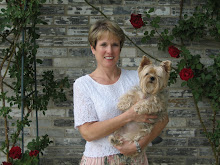
The etiquette
Knowing a little tea etiquette will help you feel at ease if you’ve never been to a tea before.
Each place setting should have a napkin. Sometimes it is placed on the tea plate and other times beside the plate. When you are seated, pick up the napkin unfold it and place it on your lap. If you must leave the table for any reason, simply lay the napkin in your chair and not on the table.
Once everybody is seated, the hostess pours the tea and always ensures that each guest's cup is full. The hostess then offers milk (never cream, since it is too heavy for tea), sugar, or lemon. Milk and lemon must never be added to the same cup, since citrus instantly spoils the milk.
How to properly drink your tea:
The best way to hold a tea cup is to slip your index finger through the handle, up to almost the first knuckle, then balance and secure the cup by placing your thumb on the top of the handle and allowing the bottom of the handle to rest on your middle finger. Hold the cup lightly, by the handle - your pinky doesn't have to be extended (Contrary to popular belief, the ring and pinkie fingers should not be extended, but should rest by curving gently back toward your wrist).
If seated at a table, do not lift the saucer (this is only proper if standing; then lift the saucer with the cup.) When you taking a sip of tea do not look around at the other guests, but lower your eyes so you can see what your doing and not spill your tea down the front of your blouse or dress.
When stirring your tea, avoid clinking the sides of the cup while stirring. Gently swish the tea back and forth being careful no to touch the sides of your cup if possible. After stirring, place your spoon quietly on the saucer, behind the cup, on the right hand side under the handle. Once used, flatware should never touch the table again. (Tea stains are difficult to remove.)
When your cup is low try to avoid swirling the tea in the cup. If you need to stir, just use your spoon again. How embarrassing if some should happen to slosh onto the tablecloth!
The food:
Most foods served at a tea are fingerfoods. The exception would be pie or trifle. Your hostess will provide forks if they are necessary. When in doubt, follow your hostess's lead.
Scones are a traditional part of a proper tea. Split the scone with a knife. Since the knife is now used, lay it gently on the side of your plate. Jam or curds is usually placed on the scone and then top off with a dollop of Devonshire cream. Simply spoon a small amount of jam onto your plate, as well as some of the Devonshire cream. Using your knife, spread the jam and cream onto your scone. Never use the serving spoon for this task.
Be sure to take small bites, since attending a tea is a social occasion and you will want to participate in the conversation without always having a full mouth. Chew (with your mouth closed) and swallow completely before taking a drink of tea, since it is hot and is not meant to wash the food down.
The hostess will signal the end of the tea by picking up her napkin and putting it on the table to the left of the plate. Everyone else should then follow her example.
These are the basic rules and are not all that hard to remember and follow. If you want to practice your manners before hosting or attending a tea, simply have a cup of tea and a sandwich with a close friend. If you have children, once in a while have a manners lunch in which everyone practices being proper. This can be a learning experience and lots of fun at the same time. Most important is to just be as polite and considerate as possible.


 Detail of tassel trim and venise lace. I did not add the ceramic rose button to this piece, but I could, if desired.
Detail of tassel trim and venise lace. I did not add the ceramic rose button to this piece, but I could, if desired.


















 Wear a skirt with a lace camisole and a lightweight jacket. A lacy underdress can be worn under a jumper or with a skirt. Put on heels instead of tennis shoes. Wear make-up. Take time to style your hair. Put on perfume and a bracelet. Wear a hat. Be feminine. Feel the elegance transform your mood and attitude!
Wear a skirt with a lace camisole and a lightweight jacket. A lacy underdress can be worn under a jumper or with a skirt. Put on heels instead of tennis shoes. Wear make-up. Take time to style your hair. Put on perfume and a bracelet. Wear a hat. Be feminine. Feel the elegance transform your mood and attitude! 


















